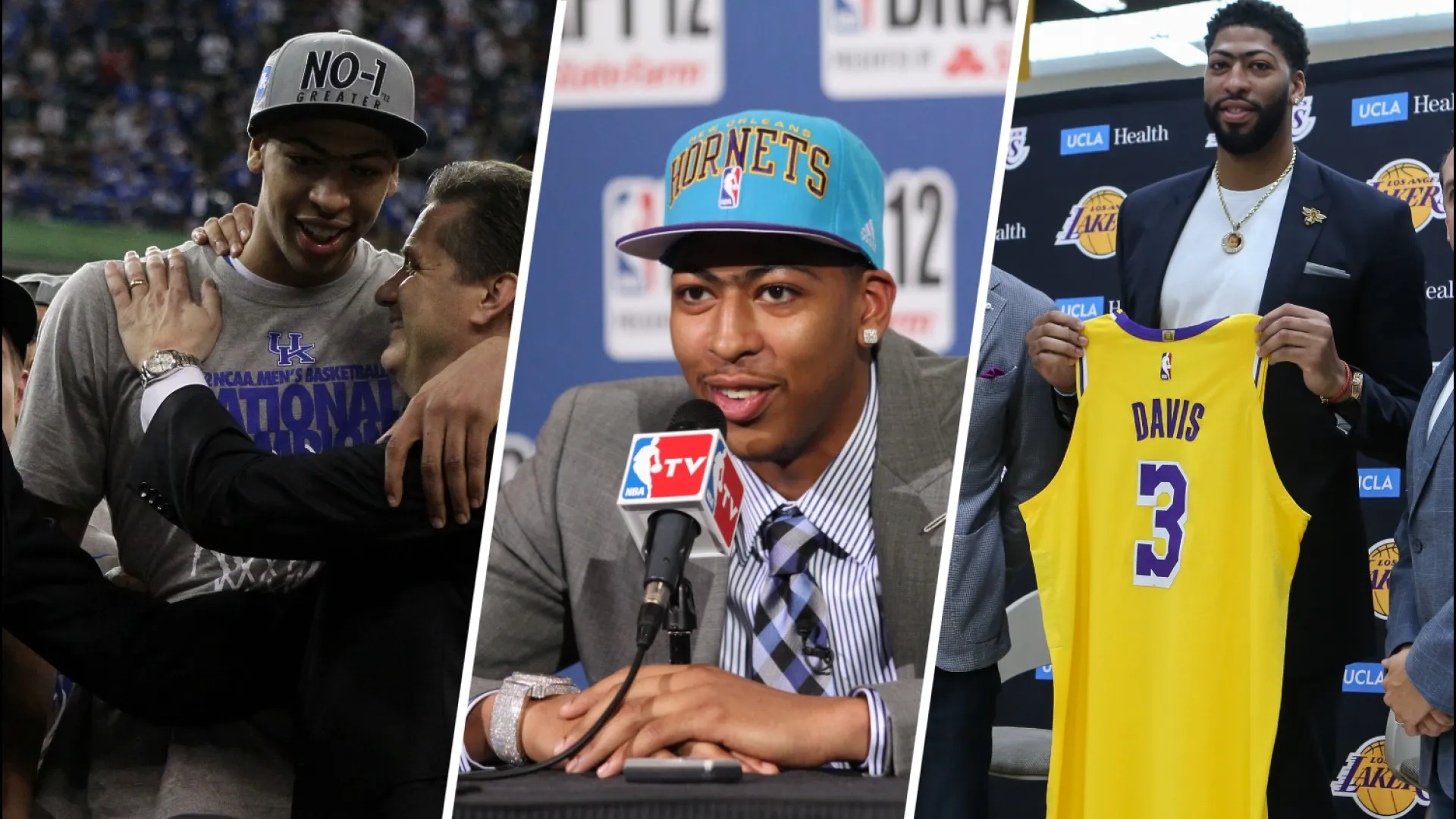
Evaluating high school football players isn't an exact science. Nobody has a patent on the recruiting process. There are dozens of evaluating services and all of them agree to disagree on every prospect. One analyst's four-star athlete is another analyst's three-star athlete.
One thing that most critics agree on, however, is that there are four services to rely on -- longtime recruiting analyst Tom Lemming of CBS Sports Network, Rivals, Scout and ESPN. Lemming has been in the business for 32 years, far longer than anyone else.
But that doesn't mean he is right and everybody else is wrong. Examine the top 100 lists of every analyst or their lists of the top 10 recruiting classes each year and you'll see some major differences. One player's talent level is determined by one observer at a particular time, on film or in person, and each evaluator sees something different.
Stay in the game with the latest updates on your beloved Chicago sports teams! Sign up here for our All Access Daily newsletter.
How do you explain, for example, that Montini wide receiver Jordan Westerkamp, who is committed to Nebraska and was recruited heavily by Notre Dame, was ranked as the No. 55 player in the nation by Lemming but wasn't ranked in the top 100 by Scout, the top 150 by ESPN or even the top 250 by Rivals?
The truth is Westerkamp wasn't rated more highly because, as he admitted to one and all during the recruiting process, he is a white kid playing a position that traditionally is the property of black athletes. In Lemming's view, however, Westerkamp proved himself as a consummate wide receiver.
"In three years, who will be right?" Lemming said. "He always catches everything within his frame. He has big-time speed and strength and couldn't be stopped during his high school career.
"I had the advantage of watching him play for the last two years while other services didn't. He has an uncanny knack for catching everything within his reach. He has super strong hands and concentration. He will be an impact player as a freshman at Nebraska, a go-to guy."
News
Lemming thinks Westerkamp made the right decision to honor his early commitment to Nebraska rather than consent to Notre Dame's late pitch.
"He made the right choice," Lemming said. "Notre Dame couldn't pass him up. But Nebraska wanted him more. They recruited him all year. He was an afterthought for Notre Dame. You should always go to the school that wants you the most, especially if they work around your talents. Let him be Jordan Westerkamp, the kid at Montini, rather than plug him into a system that he doesn't fit into."
Glenbard West defensive tackle Tommy Schutt, who is committed to Ohio State after originally being pledged to Notre Dame and Penn State, was rated No. 47 by Lemming and No. 48 by Scout and No. 64 by Rivals but No. 130 by ESPN. Bolingbrook linebacker Antonio Morrison was rated No. 69 by Lemming but No. 204 by Rivals?
Lemming said his method of evaluating players is based on his years of experience. "I have no set way. A prospect has to have size and speed for his position. He also must have the ability to be an impact player at the high school level. Production is important, too," he said.
"But I don't rate kids according to the number of scholarship offers they have. I don't elevate a kid because he signs with a big-time program. I won't be right on everybody but I have to be right on a majority.
"Remember, we are dealing with 18-year-olds. That's why some evaluations by recruiting services are so different. It is an inexact science. Everybody has different opinions. There is no set way to rank players. But it is a mistake to rank them according to offers. Production should be No. 1 over projections."
For some unexplained reasons, Lemming believes Illinois products are traditionally underrated by most national recruiting services that don't seem to spend much time in the state and don't respect its brand of football, despite the fact that Illinois is one of the leading producers of talent to the NFL.
There are two ways to evaluate an athlete, of course, by observing him in person and on film. That's why Lemming annually travels from coast to coast (and Hawaii) to personally meet with more than 1,000 prospects to evaluate their skill set, talent level, maturity, mentality and attitude.
"I like to sit down with a player, watch around 15 minutes of game film and get a reaction from him," Lemming said in his 2007 autobiography, "Football's Second Season: Scouting High School Game-Breakers."
"It helps me to understand what the player is feeling as he is making a run or a tackle. A player's true emotions come out when he watches himself on film. You can't get that feeling over a phone call and it really is the basis for a sound judgment on the kid's personality.
"It is also invaluable to have the coach in the room. He lends his expertise about the player and the coach will usually provide me with an honest appraisal. From the coach, I can find out about the player's leadership skills, his drive both on and off the field and some background on the kid's family."
What does it take to be a 5-star athlete? According to ESPN, to be designated as one of the most elite players in the class, he must "demonstrate rare abilities and can create mismatches that have an obvious impact on the game.
"They have all the skills to take over a game and could make a possible impact as a true freshman. They should also push for All-America honors with the potential to have a three-and-out college career with early entry into the NFL draft."


